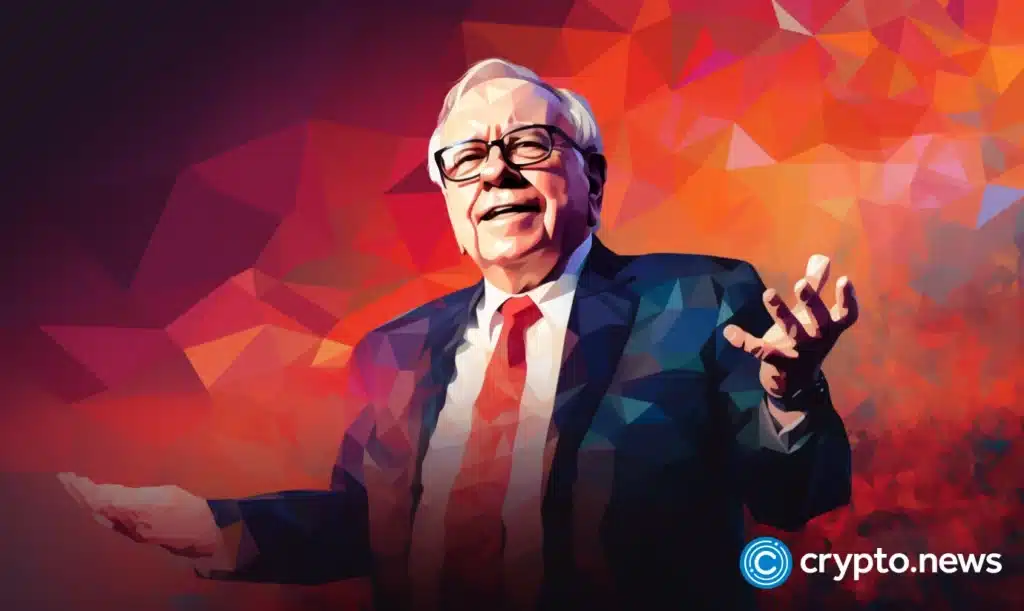Find out how growing support from famous figures and institutions is boosting the legitimacy of the cryptocurrency market and investor confidence.
Initially, Bitcoin (BTC) and its early counterparts faced skepticism, and were often seen as the domain of technology enthusiasts. These early years were notable for extreme price fluctuations, intense regulatory scrutiny, and doubts about their legitimacy and future.
Security concerns, the potential use of cryptocurrencies for illegal activities, and the lack of a central regulatory body have made many investors hesitant.
However, the narrative is starting to change as blockchain technology gains recognition for its ability to redefine not only financial transactions but various sectors around the world.
Further fueling this shift, high-profile endorsements, major institutional investments, and major corporate adoption of cryptocurrencies have contributed significantly to their legitimacy and stability.
In this regard, let us explore how prominent figures and institutional investors have gradually warmed up to cryptocurrencies and the impact of this trend.
Bill Ackman's position on BTC
Over time, Bill Ackman, founder and CEO of Pershing Square Capital Management, has become more open to Bitcoin and other cryptocurrencies.
Initially, Ackman was cautious about Bitcoin, generally avoiding the cryptocurrency sector.
But by 2022, he revealed that he had invested modestly in a few cryptocurrency projects and investment funds. Ackman described his involvement as merely an amateur pursuit aimed at learning about cryptocurrencies rather than a strategic investment move.
Recently, Ackman publicly acknowledged Bitcoin's potential in a somewhat sarcastic manner.
On March 9, he tweeted a scenario in which the price of Bitcoin could rise significantly, leading to increased mining activities and increased energy consumption.
He proposed a hypothetical chain of events in which rising energy costs trigger higher inflation and cause the dollar to fall, thus increasing demand for Bitcoin and increasing its price.
While Ackman's post may have begun as a curiosity-driven exploration, his acknowledgment of Bitcoin's potential impact on economic dynamics indicates a growing acceptance of digital assets within mainstream finance.
Trump's changing views on cryptocurrencies

Former US President Donald Trump's perspective on cryptocurrencies, particularly Bitcoin, saw a notable shift as the digital asset reached record levels of $72,953 on March 11.
In an interview with CNBC on the same day, Trump indicated a more lenient stance toward Bitcoin, indicating that he would not impose strict regulations if he returned to office.
This departure from his 2021 statements, where he dismissed Bitcoin as a threat to the US dollar, marks a new shift.
Although Trump still expresses reservations about Bitcoin competing with the dollar, he has acknowledged its growing importance as an alternative currency. He pointed to the use of Bitcoin in transactions for Trump-branded products, such as his new line of sneakers, as evidence of growing consumer use.
However, Trump continues to favor the US dollar, highlighting its stability and the importance of maintaining its global dominance. He also expressed concerns about countries shifting away from the dollar.
BlackRock's journey from doubt to acceptance
Initially, BlackRock maintained a cautious stance toward cryptocurrencies, with BlackRock CEO Larry Fink expressing doubts about their legitimacy.
In 2017, he called Bitcoin an “indicator of money laundering,” reflecting the sentiment within the company at the time.
However, as the cryptocurrency market matured and gained mainstream acceptance, BlackRock's stance changed.
During an interview with Fox Business in October 2023, Fink emphasized the growing demand for crypto assets among BlackRock's global clients.
He attributed this rise to pent-up interest in cryptocurrencies, noting, “We are hearing from customers around the world about the need for cryptocurrencies.”
Fink noted that the rise could be fueled by a flight to quality amid ongoing global geopolitical tensions, citing events such as the Israeli war and the global terrorism threat.
Warren Buffet's silent confession

Renowned as one of the most prominent value investors in history, Warren Buffett has long been a vocal critic of Bitcoin and other cryptocurrencies.
Buffett's skepticism stems from his belief that Bitcoin lacks intrinsic value, as he famously said: “You can't value Bitcoin because it's not a value-producing asset.”
It advocates investments in companies that generate tangible value over time rather than relying on speculative assets driven by investor sentiment.
However, Buffett's stance on cryptocurrencies underwent a muted shift after 2023. The company's best-performing investment that year was Nu Holdings Ltd., a Brazilian fintech company that offers various financial services, including cryptocurrency trading.
Buffett's company supported Nu Holdings during its early stages, investing a large sum of $1 billion in the company, a decision that yielded notable returns.
Nu Holdings, with its open stance on cryptocurrencies in Brazil, saw its share price rise by a staggering 93% in 2023.
This performance outperformed even the most profitable investments in Berkshire Hathaway's portfolio, highlighting the potential of cryptocurrency-related projects.
Buffett's decision to maintain his investment in Nu Holdings signals a silent and gradual shift in his view of the cryptocurrency sector.
How does this affect cryptocurrencies?
The evolving attitudes of influential figures and institutions towards cryptocurrencies greatly influence the cryptocurrency market and its growth trajectory. Let's understand how.
Increase legitimacy and investor confidence
When well-known personalities and major investors start adopting cryptocurrencies, they bring a new level of credibility to the market.
Originally, many mainstream investors were wary of the cryptocurrency market due to its volatility and links to illegal activities. Now, the support of these influential figures is helping to reduce these fears and build stronger investor confidence.
Such endorsements are important. It signals to the market that cryptocurrencies are a trustworthy and credible investment option.
New money, more stable markets
The entry of institutional investors into the cryptocurrency space will likely bring new capital inflows.
Traditionally, these investors focus on long-term holdings, which can help reduce the known volatility of cryptocurrency markets.
For example, the SEC's approval of spot Bitcoin ETFs has already led to more than $67 billion flowing into these investment vehicles as of March 13, within two months of getting the green light.
This infusion of funds not only provides liquidity but also stabilizes the market, making it more attractive to both individual and institutional investors.
Impact on the regulatory environment
The evolving views of influential leaders such as former President Donald Trump toward Bitcoin and other cryptocurrencies could play a pivotal role in shaping future policies. Trump's gradually more open stance on Bitcoin may signal changes in US regulatory approaches, which often serve as a model for global cryptocurrency regulation.
Regulatory decisions are the main drivers of cryptocurrency market expansion, affecting everything from protecting investors to enabling cryptocurrency companies to do their work.
A regulatory environment that effectively balances strict oversight with encouraging innovation is crucial. Such a balanced approach can promote market growth, attract more investments and encourage the development of innovative cryptocurrency-based financial services.
The road ahead
The journey from skepticism to widespread acceptance signifies a fundamental shift in how we perceive value, transaction security, and investing.
With continued support from prominent figures and giant institutions, the cryptocurrency market could be ready for greater legitimacy and integration into the global financial ecosystem. However, navigating the regulatory landscape and ensuring market stability will remain crucial.

